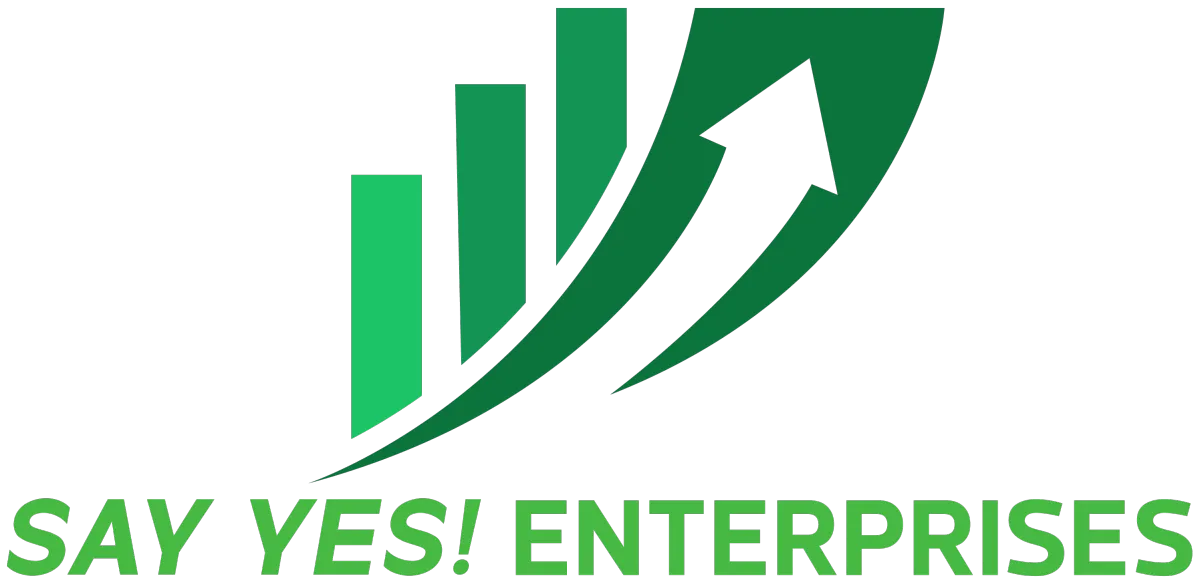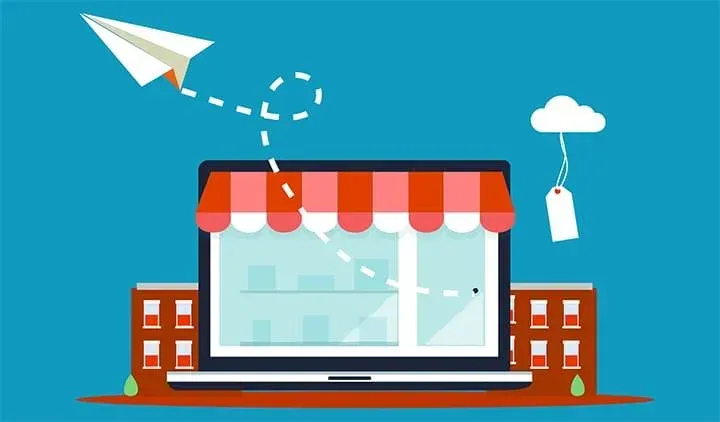ACQUIRING AND INVESTING IN GREAT BUSINESSES
IS OUR #1 PRIORITY
Say Yes! Enterprises is an investment management company that acquires, builds, and sells companies that benefit shareholders, customers, team members and communities at large.
AS SEEN ON

TOP FOUR REASONS SELLERS CHOOSE SAY YES! ENTERPRISES
Say Yes! Enterprises
ABOUT US
ACQUISITIONS
The passionate team at Say Yes! Enterprises (SYE) believes in creating win-win situations for both the business seller and the investor. The acquisition process with SYE happens in three swift phases. From start to finish, our closings can happen in days or weeks, not months. The SYE team works with business owners to find a fair valuation for their business and carry out an exit plan that meets the business owner’s needs.
INVESTMENTS
The experienced team at Say Yes! Enterprises (SYE) connects investors with excellent acquisitions. Investments are stringently vetted. (Only 6.8% of businesses get to phase one of our acquisition process.) After a business is acquired, the SYE team continues to work with investors to improve the acquisition, making the business more valuable. Investors with SYE acquire lucrative assets, not time-consuming jobs, and receive significant ROI.
PARTNERSHIPS
The results-driven team at Say Yes! Enterprises (SYE) offers their proprietary Growth Acquisition Partnerships G.A.P. Partner Program where business owners benefit from the business acumen of the SYE team. Business owners receive one-on-one attention to address specific business problems in preparation for successful exits. These partnerships have an aggressive timeline of results and the G.A.P. Partner Program consists of a consistent monthly investment, equity release or a combination of both.
Take a look at our
Process

Discovery
Sellers submit their information and financials to the Say Yes! Enterprises (SYE) team along with a request for an initial seller’s discovery call. An accepted discovery call with SYE is a sure sign that your business has great potential to exit. Only 6.8% of businesses that contact SYE reach the discovery call acceptance. This is a fun and easy call between the business owner and one or more members of the SYE team. In addition to learning more about the business and the potential for SYE to acquire the business, the SYE has two primary questions: What does the seller want, and can SYE deliver on those wants?

Valuation Determination
Valuation is a tangible determination of a business’s worth. Accurate valuation protects all parties involved in an acquisition. SYE multiplies EBIDTA or SDE by an industry multiple to determine valuation. Other factors, such as market data, competitors, assets, and intangible data about unique assets, are also considered. At this phase, SYE finds and verifies data to support the company’s valuation while the business owner can present any additional data that supports the valuation. Half of the businesses that start the discovery phase continue on to the completion of the valuation process.

Making an Offer
Once SYE understands the business and determines a fair valuation for it, the final phase is to present the offer to the business owner. The offer can consist of an acquisition, a partnership, or a combination of both. Acceptance of an offer from the business owner means that the business owner can expect a closing within weeks, sometimes even days, not months. At this phase, SYE finds and verifies data to support the company's valuation, while the business owner can present any additional data that supports the valuation.
Take a look at our
SERVICES
Business owners have plenty of pain points that are holding them back from the goal of growing and exiting their company. The team at Say Yes! Enterprises (SYE) have a knack for identifying those pain points and helping business owners quickly implement effective solutions. Anyone can identify problems, but it takes a skilled eye to know how to fix them.
Have you ever heard the story of the $10,000 screw? A man thought his car had reached the end of its useful life. He eased it into the mechanic’s garage, barely making it there. After a brief inspection of the car, the mechanic claimed he could fix the problem in five minutes. After the mechanic replaced a single screw, the car that seemed to be unfixable ran like new again. The car owner was ecstatic and was eager to pay the mechanic whatever was due. The mechanic handed him a $10,000 invoice. The mechanic explained that he wasn’t paying for the cost of the service (the screw that fixed the problem) but for the years of experience the mechanic had to know how to quickly identify and fix the problem by finding the screw that fixed the issue.
That is the same quality and experience that SYE brings to business owners. Don’t pay for the screw - pay for the experience. Lessons are freely learned but wisdom is earned. With years of experience growing, acquiring, and selling great businesses, the SYE team has the eye of expertise that can transform a business without wasting time and money that comes along with learning expensive (“free”) lessons on your own.
Exit planning involves a business owner defining exactly what is needed to comfortably exit their business. How will you find the perfect investor to help you exit your business? How much money do you need to exit your business? How soon do you need to exit? How involved do you want to be in the future of your business? What do you want out of an acquisition? The Say Yes! Enterprises (SYE) team helps guide business owners through the entire exit process from inception of the idea to the closing table.
The exit plan prioritizes the unique needs of the individual. SYE finds ways to balance the timing, financial, and personal needs of each business owner. Exit plans are perfect for business owners who have previously been dissatisfied with the valuation of their business. These plans are also important for business owners who are not ready to sell as every business owner must have an exit plan.
Rather than simply making plans, SYE also gives business owners the necessary support to bring their plans to fruition.
Revenue and Profitability Growth - Profitability is a key factor for determining how much a business is worth. The Say Yes! Enterprises (SYE) team helps business owners identify areas that could be improved to increase profits, thereby increasing the value of their company.
In one spectacular deal, SYE increased the profitability of a 7-figure eCommerce store from 6.4% to 9.2% in less than one year. After the acquisition, SYE transitioned the store from using hundreds of small vendors to one mega supplier. With decreased shipping costs and bulk order discounts, the store saved significantly.
Before the acquisition, the store only had two employees. SYE expanded the team, which made workflow more consistent. Operating costs, labor costs, and advertising costs stabilized and became more predictable. There was a much clearer picture of the number of sales necessary to make a profit.
Businesses thrive on marketing and management. Marketing attracts customers, and management is the process of guiding employees towards delivering for those customers.
Systems require supporting data. In one acquisition turnaround, the business was spending thousands of dollars per day on advertisements that were not producing consistent results. The same business also had consistently unprofitable months at the beginning of the year. The Say Yes! Enterprises team fixed these problems by advertising in different avenues and investing in keyword research to discover which advertisements really worked. With this proven data, a marketing campaign focused on the reasons customers shop in the traditionally slow months, which led to the business being profitable at the beginning of the year for the first time ever in the company’s years of history. This achievement would not have been possible without the right systems in place.
The passionate team at Say Yes! Enterprises (SYE) believes in creating win-win situations for both the business seller and the investor. The SYE team has been on both sides of the closing table, as the business seller and the business buyer. Every deal is approached with understanding both views of the respective parties and how to create deals and arrangements that benefit all involved.
The acquisition process with SYE happens in three swift phases. From start to finish, our closings can happen in days or weeks, not months. The SYE team works with business owners to find a fair valuation for their business and carry out an exit plan that meets the business owner’s needs. The SYE team has actively acquired businesses for years in a variety of sectors and industries.
When it comes to acquiring businesses, investors want the experience and data to support their decisions, and that is exactly what Say Yes! Enterprises (SYE) team delivers. SYE educates investors every step of the way and helps them to find the deal flows that are perfect for their individual needs. SYE negotiates a variety of deal types, so whether you’re looking to acquire a business with cash upfront, equity, or another type of investment, your needs can be met with SYE.
In addition, to help with acquisitions, SYE supports investors in increasing resale value and growing the businesses they acquire. In one outstanding deal, SYE increased the valuation of an acquisition by 47.78% in 11 months.
Valuation comes from multiplying EBITDA or SDE by an industry-specific multiple. EBITDA and SDE are not going to change rashly because they are based on past financial data. A business can, however, increase its valuation exponentially by acquiring more service lines or entire businesses, thereby increasing the multiple of the business.
For example, a skincare spa falls under a single multiple. However, when that same skincare spa starts selling skincare products online, additional retail multiple factors (2X+) are from the eCommerce component. If the spa’s online store sells a subscription service, an additional recurring revenue multiple (5X+) factors in. A single skincare spa can go from having one multiple to over seven (7X+) in a matter of months by making simple strategic improvements.
Read articles in our
BLOG
Say Yes! Enterprises
Helping You Say Yes! To Your Next Opportunity
At Say Yes! Enterprises, we understand that a business acquisition is far more than a business transaction for the business owner. It is a process that involves a great deal of planning, mutual trust, and excitement. You’re allowing a stranger to step into your old dream and carry the torch or while giving yourself the freedom to step into your new dream. People choose to sell their businesses for a variety of reasons. For some, it is time to retire. For others, it is time to focus on a new passion. Many business owners just want a change, and many are enthusiastically seeking relief from some part of their once beloved business that is no longer satisfying their professional and personal needs.
Whatever the reason, the Say Yes! Enterprises team understands that business owners do not seek acquisitions to buy services, have conversations, or get involved in some never ending process. Business owners start the acquisition process because they want and need a change sooner rather than later. The Say Yes! Enterprises team has an allegiance to getting business owners to your next opportunity, whatever that may be. With our quick closing process and proven partnership opportunities, Say Yes! Enterprises gives business owners the power to say ‘YES!’ to everything they have always wanted.
Work With Us Today!
ABOUT
Say Yes! Enterprises is an investment management company that acquires, builds, and sells companies that benefit shareholders, customers, team members and communities at large.






